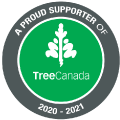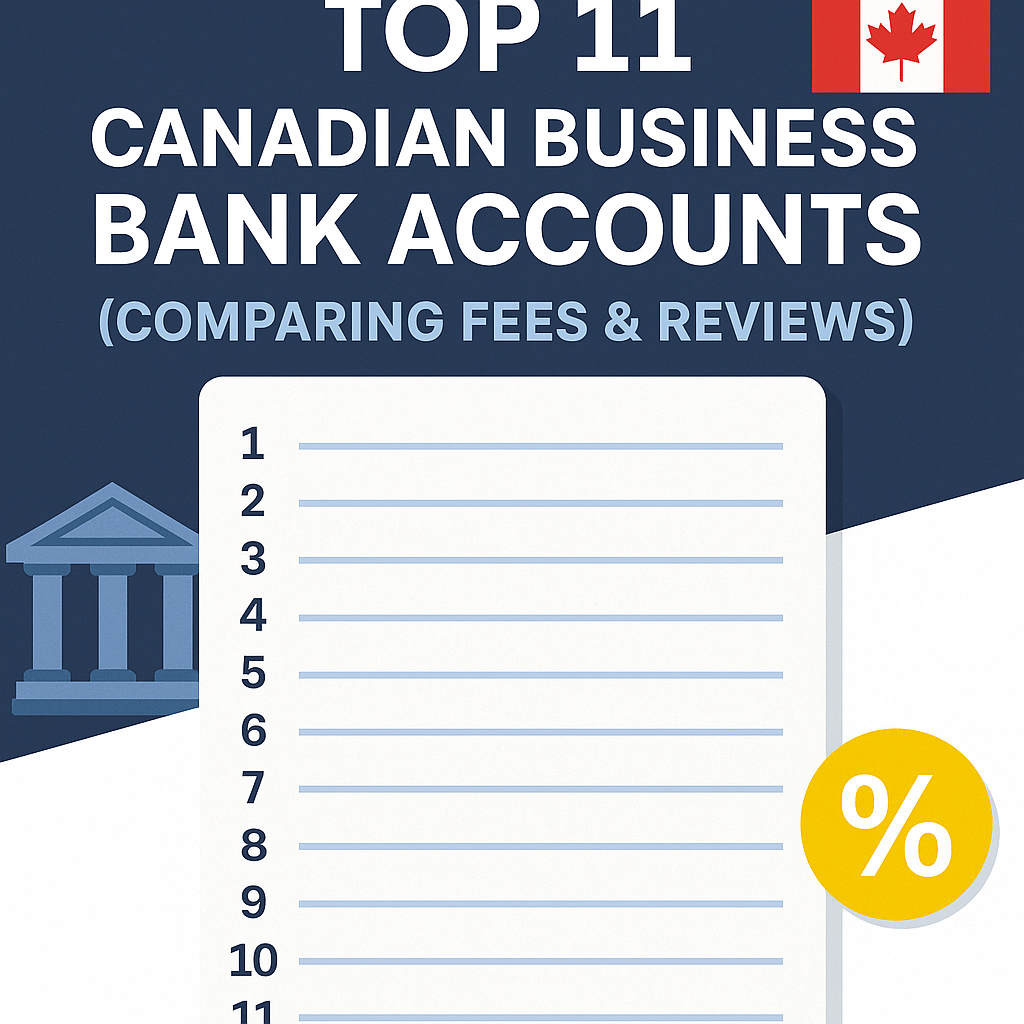GOOGLE ADS MANAGEMENT
ALL SERVICES- GRAPHIC DESIGN & BRANDING
➥ WEBSITE DESIGN TORONTO
➥ TORONTO LOGO DESIGN
➥ BROCHURE GRAPHIC DESIGN
➥ INFOGRAPHIC DESIGN
➥ BUSINESS CARD DESIGN
➥ PACKAGE DESIGN TORONTO
➥ ILLUSTRATION DESIGN
➥ ADVERTISING POSTER DESIGN
➥ BRANDING STRATEGY & SERVICES- ➤ VIEW ALL SERVICES
WEB DEVELOPMENT & SUPPORT
➥ CUSTOM WEB DESIGN TORONTO
➥ ECOMMERCE WEBSITE DESIGN TORONTO
➥ WEBSITE MAINTENANCE SERVICES
➥ SHOPIFY WEBSITE DESIGN
➥ SHOPIFY EXPERTS TORONTO
➥ WORDPRESS DEVELOPMENT
➥ WORDPRESS MAINTENANCE- ➤ VIEW ALL SERVICES
WEBSITE MARKETING & CONTENT
➥ SEO PACKAGES TORONTO
➥ TORONTO SOCIAL MEDIA AGENCY
➥ CONTENT MARKETING TORONTO
➥ PPC MANAGEMENT TORONTO
➥ AFFILIATE MARKETING CANADA
➥ STRATEGIC CONSULTATION- ➤ VIEW ALL SERVICES
ABOUT
RESOURCES- LET’S CHAT
Questions? Call us at
647-348-4995

GOOGLE ADS MANAGEMENT
ALL SERVICES- GRAPHIC DESIGN & BRANDING
➥ WEBSITE DESIGN TORONTO
➥ TORONTO LOGO DESIGN
➥ BROCHURE GRAPHIC DESIGN
➥ INFOGRAPHIC DESIGN
➥ BUSINESS CARD DESIGN
➥ PACKAGE DESIGN TORONTO
➥ ILLUSTRATION DESIGN
➥ ADVERTISING POSTER DESIGN
➥ BRANDING STRATEGY & SERVICES- ➤ VIEW ALL SERVICES
WEB DEVELOPMENT & SUPPORT
➥ CUSTOM WEB DESIGN TORONTO
➥ ECOMMERCE WEBSITE DESIGN TORONTO
➥ WEBSITE MAINTENANCE SERVICES
➥ SHOPIFY WEBSITE DESIGN
➥ SHOPIFY EXPERTS TORONTO
➥ WORDPRESS DEVELOPMENT
➥ WORDPRESS MAINTENANCE- ➤ VIEW ALL SERVICES
WEBSITE MARKETING & CONTENT
➥ SEO PACKAGES TORONTO
➥ TORONTO SOCIAL MEDIA AGENCY
➥ CONTENT MARKETING TORONTO
➥ PPC MANAGEMENT TORONTO
➥ AFFILIATE MARKETING CANADA
➥ STRATEGIC CONSULTATION- ➤ VIEW ALL SERVICES
ABOUT
RESOURCES- LET’S CHAT
Questions? Call us at
647-348-4995

GOOGLE ADS MANAGEMENT
ALL SERVICES- GRAPHIC DESIGN & BRANDING
➥ WEBSITE DESIGN TORONTO
➥ TORONTO LOGO DESIGN
➥ BROCHURE GRAPHIC DESIGN
➥ INFOGRAPHIC DESIGN
➥ BUSINESS CARD DESIGN
➥ PACKAGE DESIGN TORONTO
➥ ILLUSTRATION DESIGN
➥ ADVERTISING POSTER DESIGN
➥ BRANDING STRATEGY & SERVICES- ➤ VIEW ALL SERVICES
WEB DEVELOPMENT & SUPPORT
➥ CUSTOM WEB DESIGN TORONTO
➥ ECOMMERCE WEBSITE DESIGN TORONTO
➥ WEBSITE MAINTENANCE SERVICES
➥ SHOPIFY WEBSITE DESIGN
➥ SHOPIFY EXPERTS TORONTO
➥ WORDPRESS DEVELOPMENT
➥ WORDPRESS MAINTENANCE- ➤ VIEW ALL SERVICES
WEBSITE MARKETING & CONTENT
➥ SEO PACKAGES TORONTO
➥ TORONTO SOCIAL MEDIA AGENCY
➥ CONTENT MARKETING TORONTO
➥ PPC MANAGEMENT TORONTO
➥ AFFILIATE MARKETING CANADA
➥ STRATEGIC CONSULTATION- ➤ VIEW ALL SERVICES
ABOUT
RESOURCES- LET’S CHAT
Questions? Call us at
647-348-4995

GOOGLE ADS MANAGEMENT
ALL SERVICES- GRAPHIC DESIGN & BRANDING
➥ WEBSITE DESIGN TORONTO
➥ TORONTO LOGO DESIGN
➥ BROCHURE GRAPHIC DESIGN
➥ INFOGRAPHIC DESIGN
➥ BUSINESS CARD DESIGN
➥ PACKAGE DESIGN TORONTO
➥ ILLUSTRATION DESIGN
➥ ADVERTISING POSTER DESIGN
➥ BRANDING STRATEGY & SERVICES- ➤ VIEW ALL SERVICES
WEB DEVELOPMENT & SUPPORT
➥ CUSTOM WEB DESIGN TORONTO
➥ ECOMMERCE WEBSITE DESIGN TORONTO
➥ WEBSITE MAINTENANCE SERVICES
➥ SHOPIFY WEBSITE DESIGN
➥ SHOPIFY EXPERTS TORONTO
➥ WORDPRESS DEVELOPMENT
➥ WORDPRESS MAINTENANCE- ➤ VIEW ALL SERVICES
WEBSITE MARKETING & CONTENT
➥ SEO PACKAGES TORONTO
➥ TORONTO SOCIAL MEDIA AGENCY
➥ CONTENT MARKETING TORONTO
➥ PPC MANAGEMENT TORONTO
➥ AFFILIATE MARKETING CANADA
➥ STRATEGIC CONSULTATION- ➤ VIEW ALL SERVICES
ABOUT
RESOURCES- LET’S CHAT
Questions? Call us at
647-348-4995
![]()
![]()
![]()

- November 21, 2019
-
 Sarah Bauder
Sarah Bauder
The restaurant industry is highly competitive, to say the least. A quick Google search of restaurants in Toronto alone, produces several thousand listings. The sheer number of eateries in any given Canadian city or town is astounding. Moreover, over 90% of users never go past page 1 of a Google search. Therefore, it’s never been more essential for restaurants to implement search engine optimization (SEO) to rank higher on searches, and thus, increase the potential for customers and sales. In this article, 9 marketing experts discuss the top SEO tips in 2024 for restaurants.
Long-Form Content Is Key
“Long-form content is key to getting organic traffic, now that social reach is as low as 1%: Google’s recent 2019 update is now hugely favoring long-form, original website content. With Facebook and Instagram organic reach as low as 1%, as a restaurant, your goal should be to write content about the type of food you serve and the city in which you’re based. Identify keywords you want to rank for ‘e.g., best fish restaurant London’ using Ahrefs or a similar service, and hire a content writer and photographer to help you write articles focused on those keywords. Once traffic arrives on that specific page, make sure you have a suitable call to action in place to help entice them to your restaurant, such as a discount code for a certain day, only available via your website.”
Dale Johnson | Co-founder and Content Strategist, Nomad Paradise
A Content Cluster
“Restaurants should hire a content marketer who can build out a content cluster around B2C topics their customer base are interested in.
A blog with targeted keywords and a proper user experience will allow for restaurants to have a steady stream of inbound, organic traffic.
It also gives restaurant websites more content that can be linked to. Building links to a restaurant website is one of the easiest ways to increase their site domain and drive more organic traffic, while also earning referral traffic from the links placed themselves.”
Levi Olmstead, Director of Marketing, 2ndKitchen
Optimize For Voice Search
“As we head into 2024, the most critical trend that restaurant owners need to keep in mind is the rise in voice search. Some studies suggest 2024 will see a record 50% of internet searches being completed via voice search.
Optimize for Voice Search
Pizzeria and restaurant owners need to keep SEO in mind when building their websites by including important info like their store hours, address, phone
number, menu and even nutritional information throughout their website. Not only should this information be placed on the front end for customers to view and read, but it should also be placed in the backend schema so that Google bot can read and understand the information. A couple of reasons this is important. First, Google’s search results page is changing dramatically. Traditional organic search results are being pushed further and further down the page in favor of rich snippets, knowledge graphs and map packs – all of which improve the Google searcher’s experience by providing the information they’re looking for on the search results page itself. The second reason (and bringing us back to the importance of voice search) is that all of this movement toward snippets, maps and knowledge graphs is organizing the info
in a way that is easier for Google to answer queries for voice searches. For
example, if your location info is properly optimized on your website, your
store should rank well for searches like OK Google, show me the closest
Greek restaurants.”
Natalia Wulfe, CMO, Effective Spend
Google Business Listing
“One SEO tip for restaurants in 2024 is to take advantage of their Google Business listing, which appears in maps for local searches, as well as all the local directory listings in their area. This improves their online visibility in local search and helps them find new customers, as well as establishes their name, address and website in Google as a legitimate restaurant and as an SEO authority signal, helping drive more traffic to the site via search as well.”
Stacy Caprio, Founder, Growth Marketing
Keyword Research
“The absolute first thing you need to do is keyword research. You want to think if someone didn’t know the name of my restaurant, how could they find me? Nail down the core offerings of your restaurants (think what types of food you offer, where you’re located, values, missions, etc.) and think about some searches you’d want someone to type in to find you. To get additional ideas use tools! SEMrush and Google Ads Keyword Planner are excellent ways to start.
Definitely have a blog or a resource page. Content is going to be key
in getting people to find you but you have to make sure it’s high quality and value to the end-user. Some great ways to start would be taking any questions you’ve gotten from contact form submissions, phone calls, or during a meal. If you’re a restaurant you could also build up lists (ie Top chef tools for x, Top countries for x type of food, Best recipes for x) these will be a gateway to searchers finding you.
You HAVE to localize. As a restaurant, it is imperative that you do
all things necessary to get your listing localized. The #1 thing you need to do is register and verify yourself on Google My Business. Then you’re going to want to make sure you have your restaurant location all over the site. Thirdly, you’re going want to produce local content on your site (maybe it’s recommendations to go for before dinner or best entertainment around your restaurant, etc.).
Build quality referral traffic. If you haven’t heard of HARO – it’s a great place to start. HARO (help a reporter out) is a newsletter you can sign up for that will give you opportunities to win links and press to your site. Reporters will send out queries and if it’s relevant to you, you can respond to them. Most times they’ll link to your website and mention your brand which is wonderful exposure.”
Ciara Hautau, Lead Digital Marketing Strategist, Fueled
By 2024, Half Of All Searches Will Happen With Voice-Activated Devices
“Voice search is becoming increasingly popular, especially with local businesses like restaurants. I think if you want to plan for 2024, you should focus on building keywords that are associated with what people say instead of what they would type. For example, someone searching with a keyboard might look for Seafood restaurants near me, while someone using a device like Alexa or Google Smart Home device might say Fish Dinner in Dallas.
It turns out that these nuances can have a considerable impact on the results displayed by search engines. You shouldn’t completely neglect your current SEO strategy. Instead, focus on adding keywords for consumers using voice search alongside the same system you’re using. The goal is to reach more potential customers when people can find your regardless of the device they’re using; you’re helping to spread brand awareness.
Optimizing for these keywords will help you reach more customers. It’s estimated that by 2024, half of all searches will happen with voice-activated devices. This is one SEO tactic you can’t afford to miss out on. Businesses have not yet started optimizing for spoken keywords, so this could be an excellent opportunity to make it to the elusive first page of Google.”
Frank Spear, Content Marketer, RafflePress
The Structured Data Markup
“One of the most trending things with restaurant SEO right now is to have a menu available on a site that is marked up with structured data. For businesses already ranking well in Google (typically on the first page), the structured data markup for restaurants allow the restaurant’s site to receive a featured snippet. This featured snippet, sometimes called “position zero”, shows at the top of organic results in bold text that really stands out among results.
Restaurant SEOs and webmasters use the language from schema.org/Restuarant to mark up all of their relevant pages including a menu page. As Google crawls the page, it understands more context about the page and can associate it as a restaurant. Again, as long as a site is ranking well in natural results already, Google can show this as a featured snippet. Additionally, this type of markup has a direct correlation to voice search. Anyone using a Google home can ask something like “Thai food near me” and restaurants with structured data can be returned in results. With voice search growing in 2019 and predicted to grow by at least 20% in 2024, this is a technique restaurant owners need to consider.”
Jeff Romero, Co-Founder, Octiv Digital
More Activity On Your Google My Business Listing
“The top SEO tip we’re giving all of our clients is to produce more activity on your Google My Business listing. Everyone knows how important it is to claim your restaurant’s business listing and make sure your contact information or business hours are correct, but that’s not how restaurateurs need to look at GMB. Our data analytics team has proven a correlation between publishing activity on a GMB listing (adding a post, menu information, live events at your restaurant, etc.) and an increase in engagement (website visits, phone calls, reservations made). Google notices this type of activity, and will be more likely to serve your restaurant’s business listing in a map pack or other local search results. Your GMB listing can be one of the largest local SEO ranking factors for your restaurant if you give it the attention it deserves.”
Corey Trojanowski, Director of Digital Strategy, Valve+Meter Performance Marketing
Four Key Components
“1) Determine your keywords strategies
Restaurant keywords can be divided broadly into 2 types, i.e. broad and specific. Broad keywords refer to anything about your restaurant business in general. For example, Restaurant in Altlanta, Best San Diego Restaurant. Specific keywords, for example: Thai restaurant in Atlanta, European food in San Diego. Having a mixture of both types is essential. If your website is new, you may want to target specific keywords more, due to less competition.
2) Complete everything required for local SEO
If you’re running a local restaurant, make sure you claim and optimize your Google My Business listing, list your site in local directories, maintain a consistent NAP, do a press release, build local backlinks, and create local content.
3) Implement basic on-page & off-page SEO
Basic on-page SEO includes things like optimize title tags and meta-description, create keywords optimized content, make sure your site is mobile-friendly, improve page speed, add restaurant schema markup and ensure that your site is SSL secured. Basic off-page includes things like building niche-relevant backlinks and maintaining restaurant social media profiles
4) Optimize website for conversion
Conversion optimization tips for restaurants include things like, having a clear address and phone number on the website (above the header or footer), optimize restaurant menu for clear navigation, have a strong call-to-action, implement an online ordering app and function, have email capturing forms, and add photos of your interior and exterior.”
Jackie Owen, web developer and online marketer, Founder, Techjackie.com
The SEO tips discussed in this article are all fantastic ways for restaurants to rank higher on searches, drive quality traffic to the websites, and achieve measurable results. Be it optimizing for voice search, setting up a Google My Business profile that stands out, or having an available menu marked up with structured data, all are effective strategies for restaurant owners to employ. There are several SEO trends that every Canadian business should know. Some of the tips discussed are quick and easy, while others will be more time-consuming. Yet, all are key things for restaurant owners to consider to make 2024 a profitable year.

Sarah Bauder is a senior content specialist at Little Dragon Media. Sarah has a degree in journalism and has a decade of experience writing content at numerous renowned publications. She enjoys writing about digital marketing, business, entrepreneurship and more.
RECENT POSTS
- Top 11 Canadian Business Bank Accounts (Comparing Fees & Reviews)
- PolicyMe – Legit Canadian Insurance Policy? Let’s Review…
- 10 Small Business Loans & Financing Options in Ontario
- Top 8 Small Business Insurance Providers in Canada (2025)
- SCAM ALERT: How a Fake Google Ads Inquiry Nearly Got Us (And How to Protect Yourself)

Ready to chat about how Little Dragon Media can enhance your business?
Call us now at 647-348-4995 or

OUR AWARDS & CERTIFICATIONS






WHAT OUR CLIENTS ARE SAYING



Little Dragon Media's professionalism and commitment to delivering excellence are truly commendable. I highly recommend their services... Thank you for your stellar work!
- Delna Bharucha

Little Dragon Media worked on developing our logo and website. They did an absolutely AMAZING job on both projects. These guys ROCK and you won't be disappointed.
- Sonia Nutt

My team had a great experience working with Little Dragon Media. We will certainly engage with Little Dragon Media for any additional projects in the future. Highly recommend!
- Carly Rooney



- 682A St-Clair West Toronto, ON M6C 1B1
- (647)-348-4995
- info@littledragon.ca
MOST POPULAR SERVICES
RECENT POSTS
GET MORE CLIENTS
Don't let your competitors take over. We'll help you climb to the top and get more clients.



- 682A St-Clair West Toronto, ON M6C1B1
- (647)-348-4995
- info@littledragon.ca
MOST POPULAR SERVICES
RECENT POSTS
GET MORE CLIENTS
Don't let your competitors take over. We'll help you climb to the top and get more clients.

Contact | Press Mentions | Privacy Policy | Terms of Service
© 2024 Little Dragon Media. All Rights Reserved.








